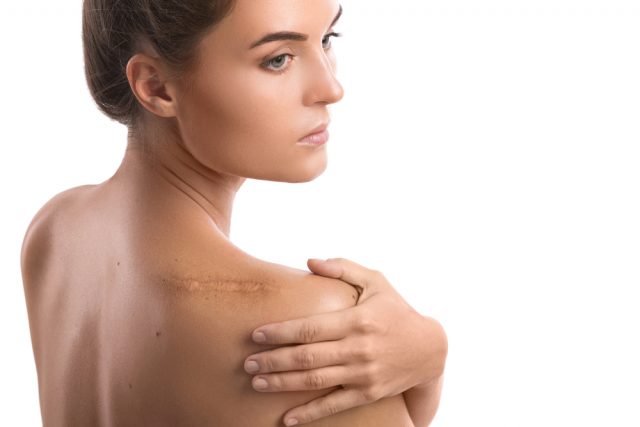Undergoing surgery can be scary enough without the thought of dealing with permanent scars! If you choose a surgeon that is reputable, you don’t need to worry about poor stitching that can create unsightly scars, as they should use a correct technique and place the scars in the natural folds. Surgeons like Dr Shaz and Dr Mark Kohout from Australia Cosmetic Clinics have had amazing results with minimising scarring but have also offered their best tips for what you can do at home to gain optimal effects.
Proper wound care
Taking care of the wound correctly can be the determining factor in how quickly it heals. If proper care is not taken, such as not following your doctors post-op instructions and trying to accelerate the process by skipping steps, you can do more damage to the area. It is important to cover the scar with a bandage, as it will prevent a scab occurring due to dehydration and will ensure that new cells are forming. Remember to consult your doctor if you decide to try something new or are unsure of anything.
Avoid stress in the area
Lifting, bending or even exercising can add stress on the incision, as it can stretch the skin which prevents healing and increases the size of the wound. This includes avoiding any bending, heavy lifting or exercise until your doctor tells you otherwise. Also, it is important to follow your doctor’s instructions regarding rest, as if you’ve had major surgery in the area, you need your body to recover and allow your immune system to do its job. Otherwise, you run the risk of creating more issues and delaying the healing process.
Infection
It is important to properly care and clean the wound to ensure it does not get infected. However, in the event that the wound becomes infected, it is important to immediately notify your doctor as infection prevents healing and the wound can become larger. This can ultimately create a secondary wound which will extend the healing and fading time of the scar.
Hydrate
Ensuring that the scar and surrounding area is hydrated and is conducive to wound healing, as it takes scars longer to heal and fade if the area is dry. Particularly if there is any scabbing on the scar, it is imperative that the skin is moisturised because if the scab tears off it may cause a secondary wound and more damage. Overall, hydrating the area will help create the perfect environment for optimal scar fading.
Avoid sun exposure
Sun exposure can cause pigmentation on the scar and surrounding areas which can make it be darker in appearance. If the scar turns darker due to sun exposure, this will take additional time to fade. If sun exposure can’t be avoided, be sure to use a broad spectrum SPF to help protect the area from UV damage.
Massage
Massaging the scars once any stitches have been removed and scabbing has healed, can speed up healing as massaging the area will remove any bumps under the surface of the skin and break-up scar tissue underneath. This will promote blood flow and collagen in the area to assist healing, using bio oil to massage the scar can also help speed up the process.
Avoid smoking and alcohol
Smoking and alcohol can dramatically affect the healing process of a scar as smoking limits oxygen-rich blood flow circulation and alcohol dehydrates the skin. It’s important to reduce these behaviours before your surgery as well as after, to ensure that your body is in an optimal condition to heal scars.
Time
With anything, allowing time for yourself to heal is essential. Fading scars don’t happen overnight, as it can take years for them to fade to near invisibility. With proper care, you can speed up the healing process and reduce any further damage which will ensure that the scar is as light as possible
Any more questions?
If you have any questions about an upcoming surgery or looking for a reputable surgeon contact or the team at Australia Cosmetic Clinics or Dr Shaz and Dr Mark Kohout directly.










